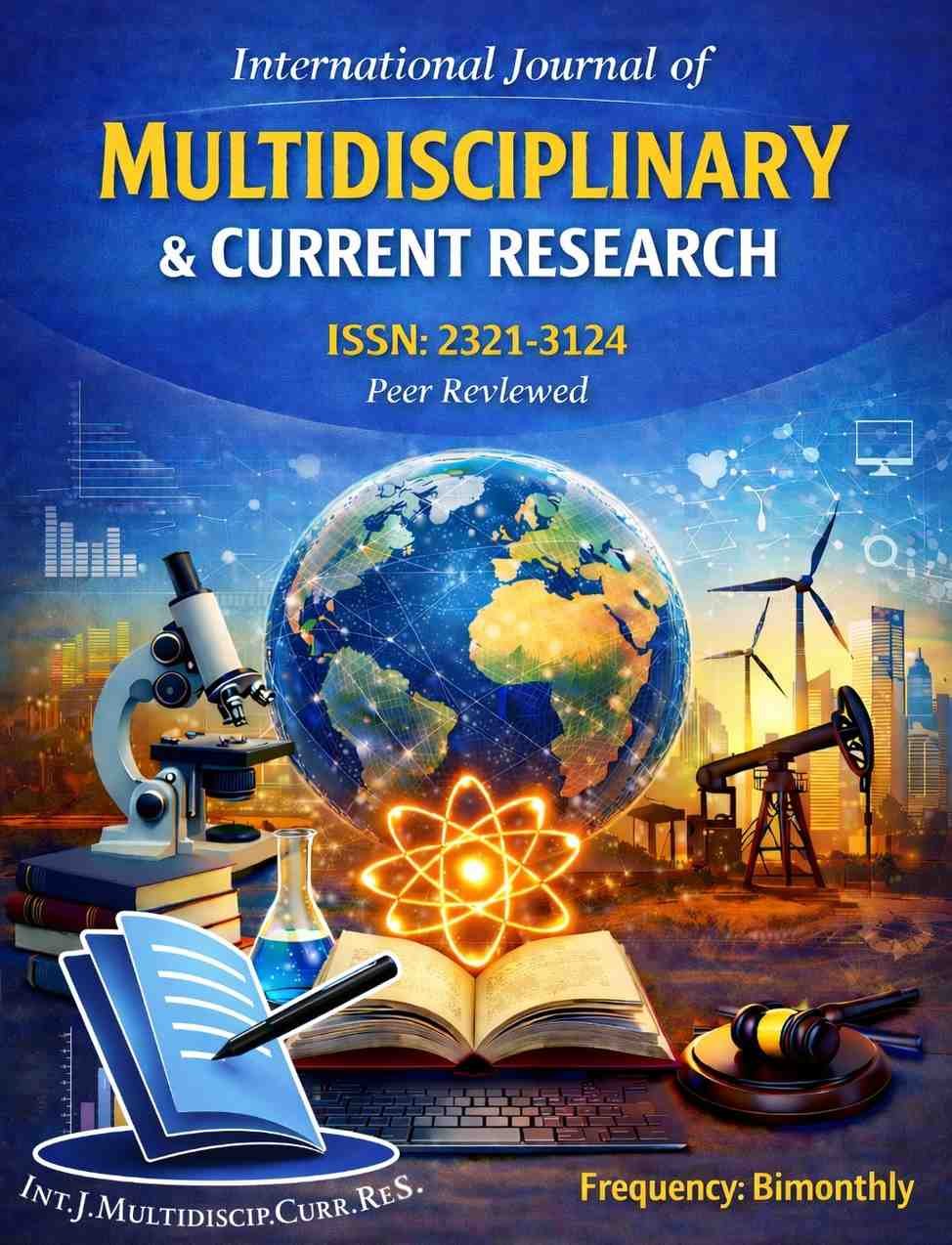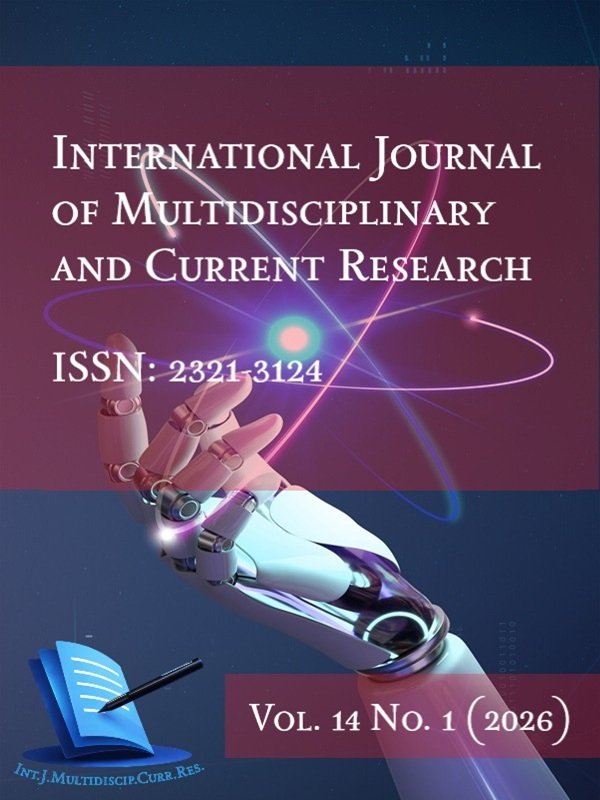
About the Journal
◼ Open Access: Immediate, free access to all published content.
◼ Repository Policy: Authors may deposit articles in repositories and personal websites.
◼ Licensing: Articles are published under CC BY-NC-SA 4.0. Authors retain copyright.
◼ Plagiarism Policy: Zero tolerance; all submissions are screened using iThenticate or equivalent tools.
◼ AI Policy: Use of AI tools must be transparently disclosed.
◼ Digital Archiving: Long-term preservation via services such as Portico or CLOCKSS.
◼ Advertising Policy: Only ethical, academic-relevant advertisements are accepted.
◼ Ahead of Print: Accepted articles are published online with DOI before issue assignment
Current Issue

The International Journal of Multidisciplinary and Current Research, Volume 14, Issue 1 (2026), presents a diverse collection of scholarly articles reflecting recent advancements across science, engineering, management, social sciences, and applied research. This issue highlights innovative methodologies, interdisciplinary perspectives, and contemporary problem-solving approaches that address real-world challenges. Contributions emphasize analytical rigor, originality, and practical relevance, offering valuable insights for researchers, academicians, and industry professionals. By fostering cross-disciplinary dialogue, this issue strengthens the journal’s commitment to disseminating high-quality research that supports knowledge development, technological progress, and sustainable solutions in a rapidly evolving global academic environment. Read More
Articles
Most Cited Articles
◼ Morphometric analysis of a drainage basin using geographical information system: a case study ⮺
◼ An overview: Metacognition in education ⮺
◼ Efficiency of accounting information system and performance measures ⮺
◼ Determinants of the climate change adaptation in rural farming in Nepal Himalaya ⮺
◼ An overview of service models of cloud computing ⮺
◼ Impact of CSR on Customer Loyalty: Putting Customer Trust, Customer Identification, Customer Satisfaction and Customer Commitment into Equation-A study on the Banking Sector of Pakistan ⮺
◼ Process parameters for green synthesis of silver nanoparticles using leaves extract of Aloe vera plant ⮺
◼ Optimization of Process Parameters by Taguchi Method: Catalytic degradation of polypropylene to liquid fuel ⮺
◼ Analysis of stress management among professionals in the Nigerian construction industry ⮺
◼ Evolution of mobile communication network: From 1G to 4G ⮺

